Is a circular economy achievable? Is it profitable? According to Closed Loop Partners founder and CEO, Ron Gonen, it’s both and so much more.
Ron Gonen, founder and CEO of investment firm Closed Loop Partners, says 62 percent of business leaders in the U.S. want to adopt more circular business practices. But only 16 percent of companies have taken significant steps toward the goal. It’s not a cut-and-dried process; the reasons for the disconnect are often complicated by complex supply chains, policies, and lots of red tape. But Gonen has a bird’s eye view on all of it. He doesn’t just see the way forward, he’s drawn the map—his 2021 book, The Waste Free World.
Gonen says the need for clarity and optimism was the central motivation behind writing the book. There, he showcases innovators and brands that are paving the way toward a circular future, using data points to demonstrate how profitable a circular economy can be. It’s also a guidebook of sorts for business leaders and consumers on how to participate in the movement.
Gonen has an interesting backstory; he worked in academia, as an entrepreneur, and for the consulting company Deloitte. In 2012, he was named the Deputy Commissioner of Sanitation, Recycling, and Sustainability for New York. All of the varied roles share what Gonen says is a common denominator aimed at bringing a fresh, capitalistic perspective to sustainability and creating a healthier planet.
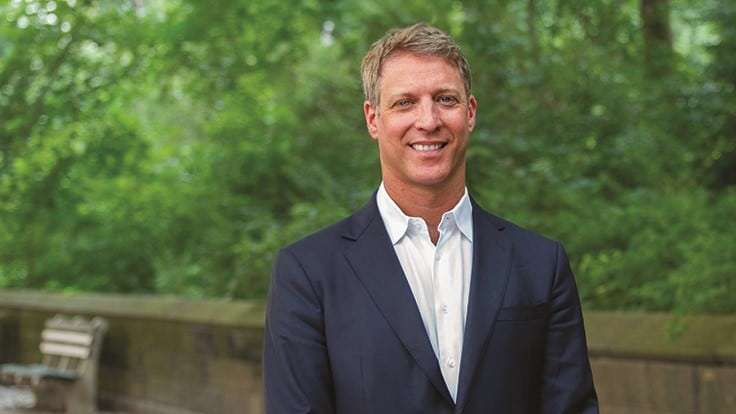
Now the core focus for Closed Loop Partners, it works with global consumer goods, retail, technology, product design, and material science companies, as well as family offices and financial institutions. These include organizations such as PepsiCo, Microsoft, GS Futures, Align Impact, among others.
Gonen says the company is working to join forces and overcome long-standing “take-make-waste” systems by scaling companies that advance the shift to a circular economy.
He’s eager to help bring the benefits of recycling and sustainability into focus, as far too many people still view both as an expense rather than a financial growth opportunity.
Gonen says that as climate disasters ravage the globe, it’s “imperative” that we expand efforts to recapture post-consumer goods and reduce greenhouse gas emissions. He says it’s why Closed Loop Partners is positioning itself at the forefront of building a circular economy.
Ethos caught up with Gonen recently via email to talk about the shift to a circular economy and what that means for our future.
Ethos: In a nutshell, for the uninitiated, what is a circular economy and why does it matter?
Ron Gonen: The circular economy is an overhaul of how products are designed, manufactured, sold, refurbished, and recycled into new products. It is the most significant restructuring of global commerce since the industrial revolution, to one that aligns capitalism with positive social and environmental impact by reducing waste and greenhouse gas emissions via materials innovation, advanced recycling technologies, supply chain optimization, and landfill diversion. The ideal result is a zero-waste, “closed-loop” production and consumption system that works in harmony with the environment and wastes no resources.
Where our current, linear economy continuously extracts raw materials from the environment and wastes them in landfills and the natural environment at end-of-life, the circular economy maximizes the value of all materials produced and used ensuring that none of them go to waste. It is a framework for global corporations and startups alike to reimagine capitalism and reduce costs, increase resource efficiency and protect the environment we share.
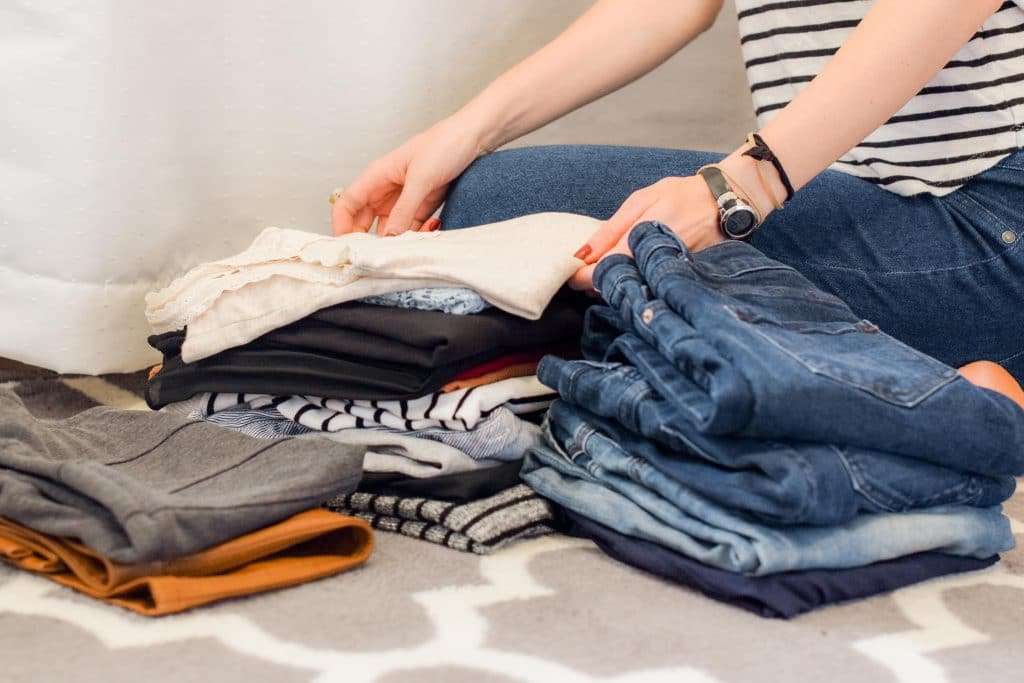
A circular economy ensures that customers, consumer goods companies, and communities are owners of an economy that works to their benefit, and to the planet’s benefit. It does away with the hundreds of billions of dollars in costly virgin resource extraction and landfill fees that we have been paying for the past seventy-five years, and it prohibits the theft of our oceans and land by polluters who claim it’s necessary for the development and growth of our economy.
Sometimes people ask me: Isn’t the “circular economy” really just the latest buzzword for sustainability? But it’s so much bigger than that. A circular economy reimagines how businesses operate fundamentally, using sustainable technology, products, and business models to balance economic growth with the state of the environment.
The concept’s origins date back to the 1960s, but it only recently came to prominence among corporate business leaders, financial investors, government officials and NGO figures, propelled by a legion of entrepreneurs who are designing circular products and services. That’s because they’ve recognized that circularity is superior for profits while also transformative in battling climate change.
Ethos: What are some meaningful ways you’re seeing industries tackle environmental issues?
RG: Almost half of all greenhouse gas emissions are attributed to how we manufacture the products and services we use. Advancing the circular economy––one in which these goods are produced efficiently and never wasted––is a critical part of addressing climate change and environmental issues. Many companies today are focused on adopting and accelerating circular solutions. As new supply chain pressures, changing consumer values, technological developments and regulatory forces transform today’s landscape, there is a meaningful investment opportunity in the realignment and modernization of industries to align business and environmental goals. At every stage of the supply chain, we can reimagine how we make, sell and consume products.
Today, manufacturing and production industries––from consumer goods to fashion––are exploring smart planning systems, reuse and refill technologies, low-impact material science, IoT, and blockchain solutions to track a product’s life cycle. Other inspiring efforts include technology that turns curbside recycled glass into lightweight construction fill material, the use of AI and robotics for sortation at recycling facilities, and cellulose insulation made from recycled feedstock. All of these innovations are paving the way for a circular economy that reduces environmental impact— and with investment and collaboration, these practices can become the standard.
Ethos: Some of these issues can feel rather massive on the zoom out, like recycling. What are some best practices you recommend for consumers to incorporate in their personal lives, and what should they look out for from the brands they shop? And, most important: does it really matter?
RG: It definitely matters. To advance the circular economy means to align the interests of customers, shareholders, businesses, local communities, and the environment. Since the circular economy touches every part of the value chain in a complex global system, every stakeholder, including consumers, must be involved. Consumers hoping to reduce their environmental footprint can approach the task from several angles.
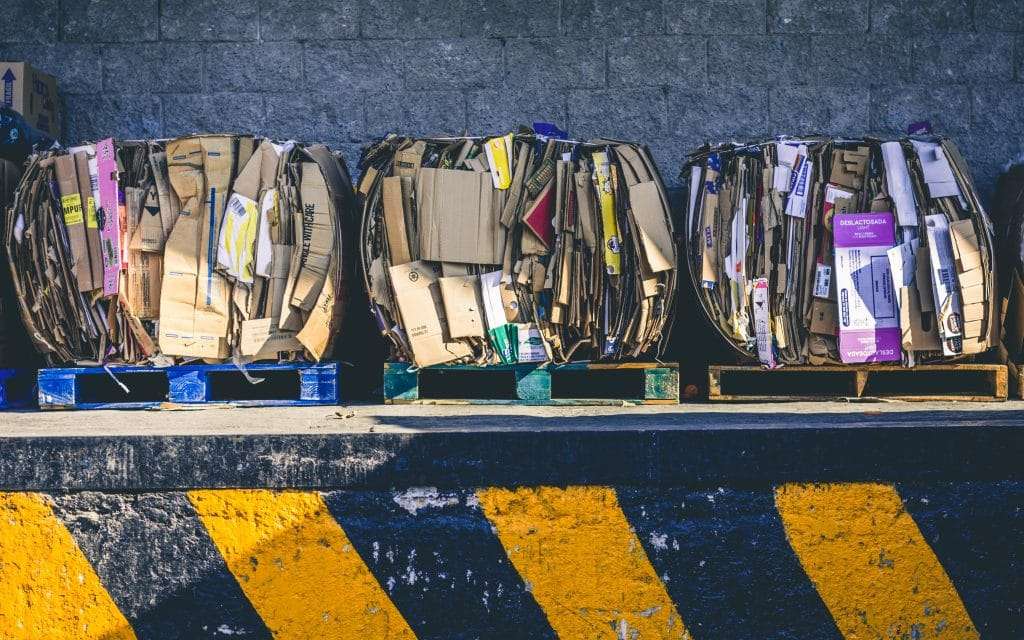
First, consumers can invest in durable, multi-use items—such as reusable grocery bags, water bottles, coffee cups, lunch boxes, and food containers—to cut down on day-to-day waste. Second, consumers can replace single-use plastic items with products and packaging made from plastic alternatives. This can help decrease our reliance on the extraction of finite fossil fuels.
In today’s market, you can find everything from toothbrushes and deodorant to doggie bags and makeup wipes made with renewable materials like algae, bamboo, mushrooms, eucalyptus, coconut fibers, and corn. These materials are rapidly replenishable and, if there is the right composting infrastructure available, can be composted at end-of-life, meaning they can help nourish new crops. Of course, the tradeoffs of these alternative materials must be considered, and it is equally important to know which types of materials can be recycled or composted within your city or town, to ensure that they are not adding to the waste challenge.
Third, consumers can look for opportunities to make lifestyle choices that equal less waste. Skip the straw at the bar, buy long-lasting food items in bulk, purchase clothing and home goods you’ll want to keep for a long time, get your shoes repaired instead of buying new ones, and plan ahead to avoid buying packaged convenience items while on the go.
Although waste and pollution will not be eradicated through consumer behavior alone, the economy won’t shift unless we do. As new technologies push us closer and closer to a circular economy, we can ever more powerfully vote for a waste-free world with our purchasing choices.
Ethos: How do we localize supply chains? Is it achievable? And how does this impact the environment?
RG: While the transition to localized supply chains might seem improbable due to entrenched corporate interest, the fiscal benefit of localized circularity is the most powerful case for its adoption. Companies can save hugely on materials acquisition, packaging, and transport costs by shifting to local production and distribution models, all while supporting the natural environment and meeting consumers’ growing expectations for local, sustainable products.
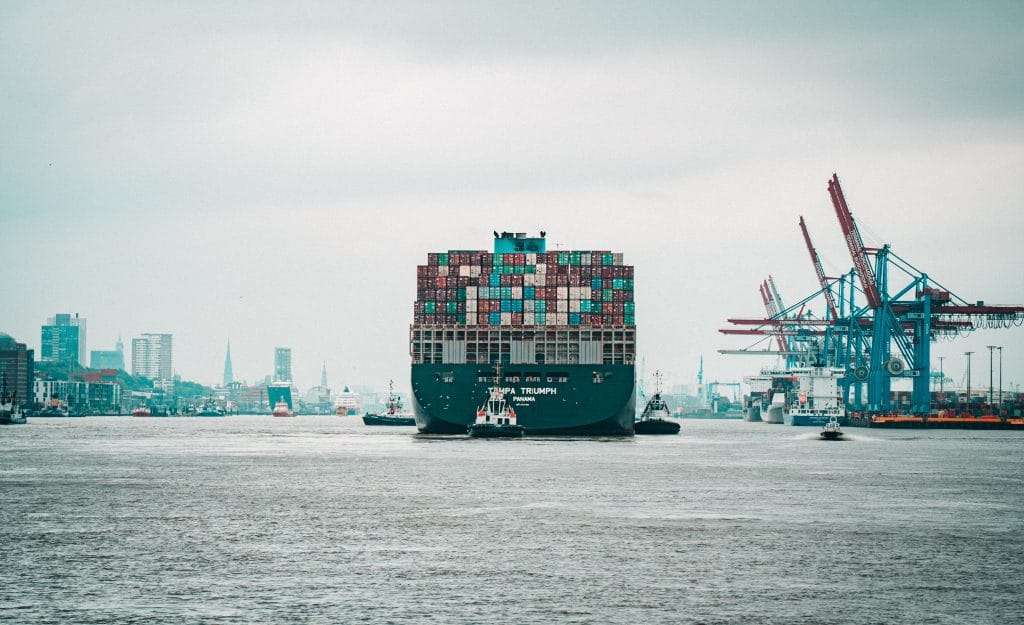
It starts with investment in local recycling and recovery infrastructure, to begin minimizing natural resource extraction and capturing the latent value of existing materials—including everything from plastic and textiles to concrete and steel to electronics and appliances—that would otherwise become waste.
Another critical standard is to build for longevity—not planned obsolescence—in goods as well as infrastructure, to maximize the value of materials already in circulation and prevent further contributions to landfills and ocean waste.
Thanks to advances in automation and machine learning, as well as consequences of global supply chain disruptions, companies are now highly motivated to use onshore manufacturing. The accelerating effects of climate change and natural resource depletion also drive this impetus. The ability to recycle raw materials locally is crucial to maintain profits in an increasingly resource-constrained world, so we must invest in circular technologies now, and the market will lead us to the finish line.
Ethos: Closed Loop is a leading investor in this space. Can you speak to some of the brands you’re investing in and what issues they’re tackling?
RG: With over 50 investments across our funds and three pre-competitive industry consortia to solve shared material challenges, Closed Loop Partners acts in several key areas to advance the circular economy. The firm invests across a range of asset classes––including venture capital, growth equity, project-based finance and private equity––that accelerates the growth of early-stage companies through established companies, in tandem with an innovation center that catalyzes circular solutions.
Our Ventures Group invests in leading packaging innovations, for example, reuse and refill models, which give consumers the option to meaningfully cut down on waste. One I’m particularly excited about is Algramo, a Chilean-based company deploying a tech-enabled reuse and refill system. Using Algramo’s vending machines, consumers can dispense household cleaning products by the gram into smart, reusable containers, getting exactly the amount of product they need and eliminating the need for single-use packaging altogether.
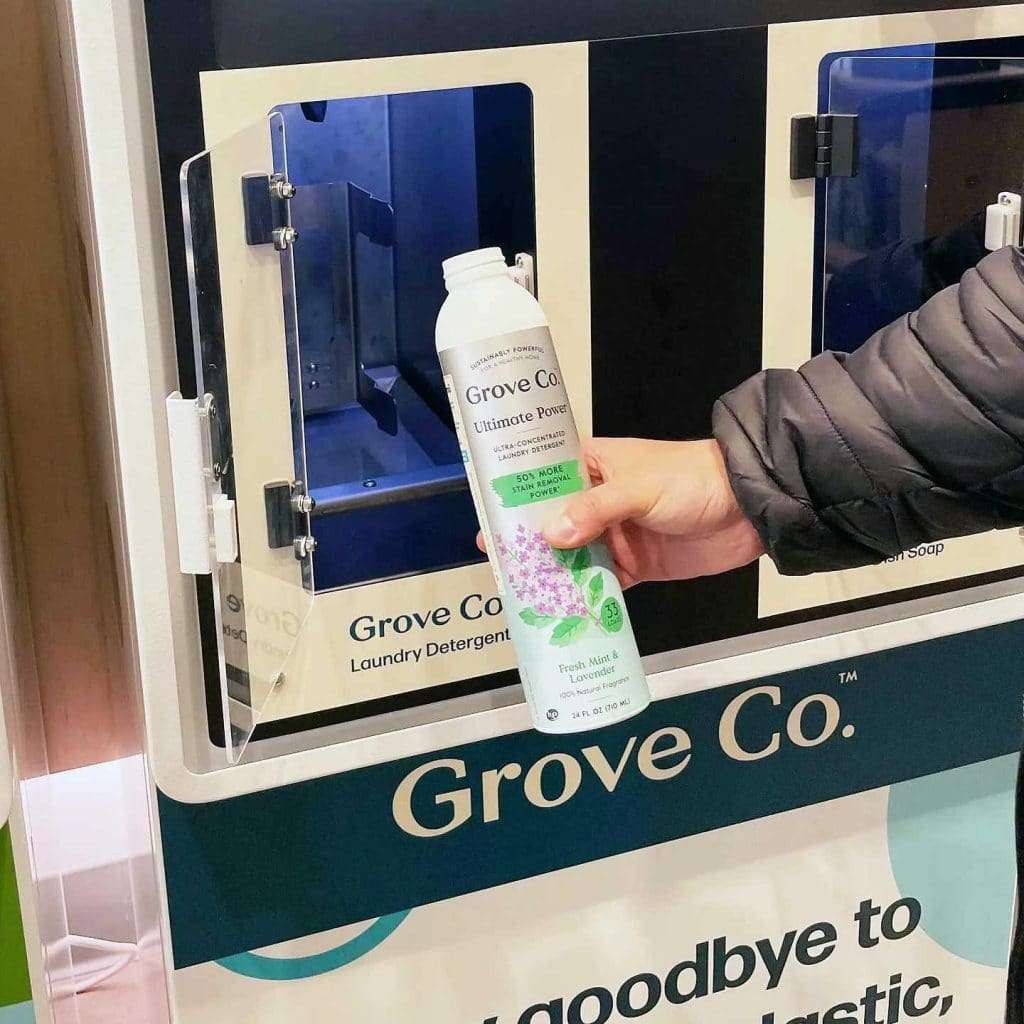
Our Growth Equity Group is currently focused on bringing scalable circular solutions to the fashion industry. Technology company Browzwear is a pioneer in the space, providing 3D apparel design, development, and merchandising solutions to fashion companies. With Browzwear, apparel companies can move toward using true-to-life digital clothing samples to enhance productivity in the design phase, speed up the time apparel products take to go to market, and reduce the textile waste associated with creating physical clothing samples.
We’re very optimistic about these business models, and we hope to see a continued trend toward circular practices as these companies grow.
Ethos: How do policymakers play a role in all of this?
RG: As the imperative to transition to a circular economy spreads through the private sector, we must also call on public leaders to support and facilitate this shift.
Political leaders around the globe have instituted initiatives and passed legislation to accelerate the transition to a circular economy. The European Union (EU) has been a bold leader in the space, and in 2018 the EU and China signed a Memorandum of Understanding on Circular Economy Cooperation, where both pledged to engage in ongoing dialogue about how best to advance circular initiatives. Europe is well ahead, with the EU having agreed in 2015 on its Action Plan for the Circular Economy, and pushing legislation to set targets for manufacturers’ use of recycled materials and impose restrictions on single-use plastic.
With the help of policymakers here in the U.S., we can work on passing bills like these to further promote circular economic practices on a large scale.


